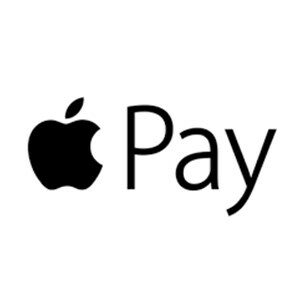 Back
Back
Apple sued over monopoly on the tap-to-pay market
By Gaia Lamperti
 On Monday, tech giant Apple was sued over Apple Pay, the iPhone e-wallet, with accusations of an antitrust violation. The class-action complaint was filed in San Francisco federal court by Affinity Credit Union, an Iowa-based chartered credit union, accusing the company of fending off competition from other payment card issuers.
On Monday, tech giant Apple was sued over Apple Pay, the iPhone e-wallet, with accusations of an antitrust violation. The class-action complaint was filed in San Francisco federal court by Affinity Credit Union, an Iowa-based chartered credit union, accusing the company of fending off competition from other payment card issuers.
According to the lawsuit, Apple “coerces” consumers who use its smartphones, smartwatches and tablets into using its own wallet for contactless payments, unlike makers of Android-based devices that let consumers choose wallets such as Google Pay and Samsung Pay. The filing seeks unspecified damages and a halt to Apple’s alleged anti-competitive conduct.
By excluding competition, Apple can charge “payment card issuers fees that no other mobile wallet ventures to impose,” Affinity Credit Union said in the lawsuit. The credit union claims Apple is violating the Sherman Act, designed to protect competition, by tying its mobile devices and mobile wallet together and by excluding all competitors.
Iowa’s Affinity Credit Union said Apple’s anti-competitive conduct forced the more than 4,000 banks and credit unions using Apple Pay to pay at least $1 billion in excess fees annually for the privilege, which eventually minimised the incentive for the California-based company to make Apple Pay work better and make it more resistant to security breaches.
“If Apple faced competition, it could not sustain these substantial fees,” Affinity Credit Union said. “Apple’s conduct harms not only issuers but also consumers and competition as a whole.”
Apple has not yet released official statements on the issue.
Apple’s precedents
Law firm Hagens Berman said this is the third time Apple is sued for antitrust violations. In 2015, the firm secured a combined $560 million settlement against the tech company regarding price fixing of e-books, and earlier this year it secured a $100 million settlement from Apple on behalf of iOS developers who alleged that Apple’s 30% commission on App Store purchases was excessive.
As of now, the company already faces a possible fine after European Union regulators said it had abused its dominance in iOS devices and mobile wallets last May, as the tech giant refused to give payment rivals access to its technology. Furthermore, Apple charges issuers a 0.15% fee on credit transactions and a flat 0.5 cent fee on debit transactions using Apple Pay, while Android-based rivals charge nothing.
The Apple Pay fees “generated a reported $1 billion for Apple in 2019, and this revenue stream (earned from card issuers) is predicted to quadruple by 2023,” Affinity Credit Union said in the lawsuit.
For this reason, last August, EU regulators helped obtain a $100 million settlement for smaller iOS developers, which claimed Apple overcharged them on commissions. In Europe, most payments in shops made with a mobile phone rely on a wireless technology called ‘Near Field Communication’ (NFC), a functionality that enables communication between a customer’s mobile phone and the shop’s payments terminal – allowing ‘tap and go’.
“Evidence on our file indicates that Apple’s conduct cannot be justified by security concerns,” says the EU’s website, following the investigation in May. Apple Pay has faced similar scrutiny in other regions, including Australia.
IBSi FinTech Journal

- Most trusted FinTech journal since 1991
- Digital monthly issue
- 60+ pages of research, analysis, interviews, opinions, and rankings
- Global coverage
Other Related News
Related Reports

Sales League Table Report 2025
Know More
Global Digital Banking Vendor & Landscape Report Q2 2025
Know More
NextGen WealthTech: The Trends To Shape The Future Q4 2023
Know More
Intelligent Document Processing in Financial Services Q2 2025
Know More


